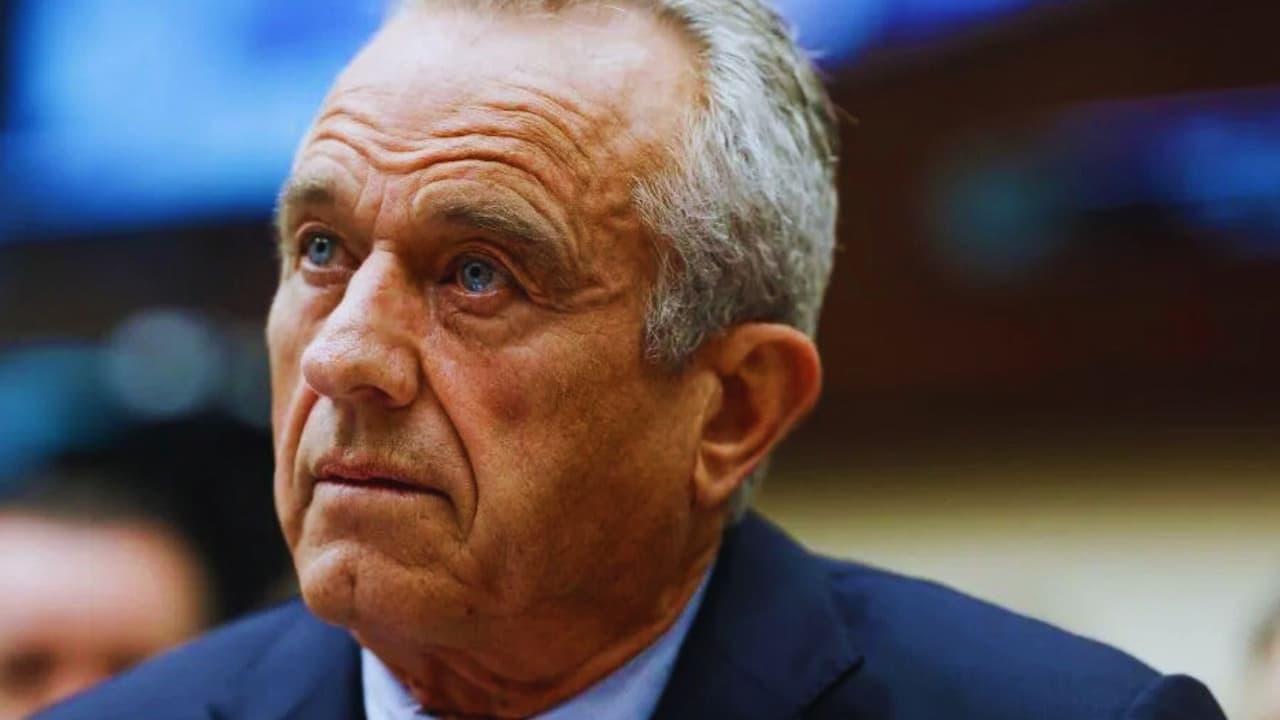Market Tremors and Political Shockwaves: Trump’s Bold Pick of RFK Jr. for HHS Secretary
President-elect Donald Trump has nominated Robert F. Kennedy Jr. as the next Secretary of Health and Human Services (HHS), a move that has sparked ripples through both Wall Street and Washington. The unexpected selection has triggered immediate market reactions and sparked intense debate across the political spectrum.
Market Impact
The announcement hit healthcare stocks hard, with major pharmaceutical companies experiencing significant losses. Pfizer saw its shares drop more than 4%, while Moderna suffered a steeper decline of approximately 7%. European healthcare giants also felt the tremors, with Novo Nordisk falling 5% and AstraZeneca and GSK each dropping more than 3%.
Investment expert Russ Mould of AJ Bell noted that the nomination has “spooked” shareholders, despite uncertainty about how the new administration might implement its promised changes. The market reaction reflects deeper concerns about potential shifts in healthcare policy under Trump-Kennedy leadership.
A Controversial Choice
Kennedy, known by his initials RFK Jr., brings a complex and controversial background to the nomination. As an environmental lawyer turned public health critic, he has gained a significant following by challenging what he sees as corporate influence in healthcare decisions. His stance on various health issues has drawn both passionate support and fierce criticism:
- Vaccine policies
- Water fluoridation
- Raw milk regulations
- Covid-19 treatments
- Processed food restrictions
- Pharmaceutical industry oversight
Political Fallout
The nomination has created unusual political alignments. Former Vice President Mike Pence, who served in Trump’s first administration, has publicly opposed Kennedy’s nomination, citing concerns about Kennedy’s positions on abortion rights.
In a statement through his Advancing American Freedom nonprofit, Pence warned that Kennedy would be “the most pro-abortion Republican appointed secretary of HHS in modern history.”
Potential Policy Shifts
If confirmed, Kennedy would lead an agency with over 80,000 employees and 13 operating divisions, overseeing crucial programs like Medicare and biomedical research. His appointment could mark a significant departure from both the Biden administration’s policies and Trump’s first term approaches. Kennedy has already signaled potential changes:
- Stricter oversight of pharmaceutical companies
- Increased transparency in vaccine development
- School lunches are subject to restrictions on processed foods.
- New approaches to drug pricing
- Changes in food safety regulations
Industry Response
Healthcare industry leaders are taking a cautious approach. Paul Chaplin, CEO of Bavarian Nordic, acknowledged the uncertainty but noted that Trump’s previous term actually benefited some sectors of the healthcare industry. “It is too early to say, and we have to wait and see how things develop,” Chaplin stated in a BBC World Business Report interview.
Expert Concerns
Public health professionals have expressed serious reservations about the nomination. Dr. Georges Benjamin, executive director of the American Public Health Association, questioned Kennedy’s qualifications, stating this is “the first time we’ve ever had someone walking in the door whose public views you just can’t trust.”
As the nomination moves forward to Senate confirmation, both supporters and critics are watching closely to see how Kennedy’s unconventional views might translate into federal health policy.
The appointment represents a bold gambit by Trump, potentially reshaping American healthcare policy while testing the boundaries between corporate influence and public health priorities.
